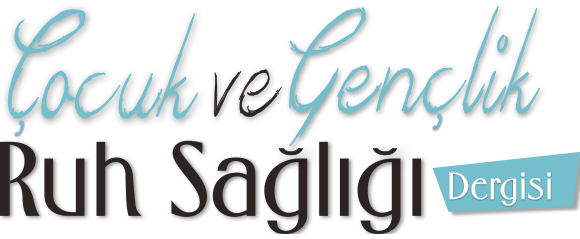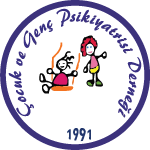ABSTRACT
Conclusion:
In our study, it was found that cognitive distortions were higher in adolescents with MDD, especially in those with comorbid anxiety disorder. Our findings emphasize the need to address cognitive distortions in MDD treatment.
Results:
During the study period, 82 individuals with MDD (mean age: 17.00 ± 0.75 years: 52 girls) and 90 healthy controls (mean age: 17.03±0.71 years: 61 girls) were included in the study. In the MDD group, all CDC subscales and total score were statistically significantly higher in comparison to those in healthy controls (p<.05). When the CDC subscales were compared between the groups with and without comorbid anxiety disorder in the MDD group; there were statistically significantly higher values in mind reading (=0.002), catastrophizing (<.001), labelling (p<.001), overgeneralization (p=.001) and total scores (p=.001) in the anxiety comorbidity group. We found a statistically significant correlation between BDI scores and all subscales of CDC. It was found that “labeling” in interpersonal domain and “personalization” in the personal achievement domain were the features that predicted BDI score.
Materials and Methods:
The study was designed as a cross-sectional study and was conducted between March 2017 and March 2018 at Katip Çelebi University Faculty of Medicine and Abant İzzet Baysal University Child and Adolescent Psychiatry Department. The diagnoses and comorbid conditions of the adolescents in the MDD group were evaluated using the Affective Disorders and Schizophrenia Interview Schedule for School Age Children - Present and Lifetime Version. The severity of depressive symptoms was evaluated with the Beck Depression Inventory (BDI) Cognitive Distortions Scale (CDC).
Objectives:
The aim of this study is to compare the cognitive distortions of adolescents with Major Depressive Disorder (MDD) with healthy controls. In addition, it is aimed to identify the relationship between the anxiety disorder comorbidity and cognitive distortions in adolescents with MDD.
Keywords:
Adolescent, depression, cognitive distortions, anxiety
References
1Swartz HA, Rollman BL. Managing the global burden of depression: lessons from the developing world. World Psychiatry. 2003;2:162-3.
2Costello EJ, Mustillo S, Erkanli A, Keeler G, Angold A. Prevalence and development of psychiatric disorders in childhood and adolescence. Arch Gen Psychiatry. 2003;60:837-44.
3American Psychiatric Association. Diagnostic and statistical manual of mental disorders. 5th ed. Text Revision. American Psychiatric Association Pres: Washington; 2013.
4Birmaher B, Brent D; AACAP Work Group on Quality Issues, Bernet W, Bukstein O, Walter H, Benson RS, Chrisman A, Farchione T, Greenhill L, Hamilton J, Keable H, Kinlan J, Schoettle U, Stock S, Ptakowski KK, Medicus J. Practice parameter for the assessment and treatment of children and adolescents with depressive disorders. J Am Acad Child Adolesc Psychiatry. 2007;46:1503-26.
5Beck AT, Rush AJ, Shaw BF, Emery G. Cognitive therapy of depression. New York: Guilford Press. 1979.
6Dryden W, DiGuiseppe R, Neenan M. A Primer on Rational Emotive Behavior Therapy. Illinois: Research Press. 2003.
7Akkoyunlu S, Türkçapar MH. A Technique: Examining the Evidence. JCBPR 2012;1:184-90.
8Dozois DJA, Beck AT. Cognitive schemas, beliefs and assumptions. In: Dobson KS, Dozois DJA, editors. Risk factors in depression. Oxford, England: Elsevier/Academic Press. 2008; 121-43.
9von Hecker U, Sedek G. Uncontrollability, depression, and the construction of mental models. J Pers Soc Psychol. 1999;77:833-50.
10Foland-Ross LC, Hamilton JP, Joormann J, Berman MG, Jonides J, Gotlib IH. The neural basis of difficulties disengaging from negative irrelevant material in major depression. Psychol Sci. 2013;24:334-44.
11Beck JS. Cognitive therapy: Basics and beyond. New York: USA: Guilford. 1995.
12Burns DD. Feeling good: The new mood therapy. New York, NY, USA: Signet. 1980.
13Clark DA, Beck AT, Alford BA. Scientific foundations of cognitive theory and therapy of depression. New York, NY, USA: Wiley 1999.
14Özdel K, Taymur I, Guriz SO, Tulaci RG, Kuru E, Turkcapar MH. Measuring cognitive errors using the Cognitive Distortions Scale (CDS): psychometric properties in clinical and non-clinical samples. PLoS One. 2014;9:e105956.
15Kaufman J, Birmaher B, Brent D, Rao U, Flynn C, Moreci P, Williamson D, Ryan N. Schedule for Affective Disorders and Schizophrenia for School-Age Children-Present and Lifetime Version (K-SADS-PL): initial reliability and validity data. J Am Acad Child Adolesc Psychiatry. 1997;36:980-8.
16Gökler B, Ünal F, Pehlivantürk B, Çengel-Kültür E, Akdemir D, Taner Y. Reliability and validity of schedule for affective disorders and schizophrenia for school age children present and lifetime version-Turkish version (K-SADS-PL-T). Turk J Child Adolesc Ment Health. 2004;11:109-6.
17BECK AT, WARD CH, MENDELSON M, MOCK J, ERBAUGH J. An inventory for measuring depression. Arch Gen Psychiatry. 1961;4:561-71.
18Hisli Sahin N. Use of the Beck Depression Inventory with Turkish University Students: Reliability, validity and Factor Analysis. Turk J Psychol. 1989;6:118-26. https://toad.halileksi.net/sites/default/files/pdf/beck-depresyon-envanteri-toad.pdf
19Covin R, Dozois DJA, Ogniewicz A, Seeds PM. Measuring Cognitive Errors: Initial Development of the Cognitive Distortions Scale (CDS). Int J Cogn Ther. 2011;4:297-322.
20Cerit C, Coskun B. The comparison of cognitive distorsions among patients with depression, dysthymia, remitted depression and healthy control group. Anadolu Psikiyatri Derg. 2012;13:250-5.
21Thomas SJ, Larkin T. Cognitive Distortions in Relation to Plasma Cortisol and Oxytocin Levels in Major Depressive Disorder. Front Psychiatry. 2020;10:971.
22Leung PW, Poon MW. Dysfunctional schemas and cognitive distortions in psychopathology: a test of the specificity hypothesis. J Child Psychol Psychiatry. 2001;42:755-65.
23Brown HM, Waszczuk MA, Zavos HM, Trzaskowski M, Gregory AM, Eley TC. Cognitive content specificity in anxiety and depressive disorder symptoms: a twin study of cross-sectional associations with anxiety sensitivity dimensions across development. Psychol Med. 2014;44:3469-80.
24Roiser JP, Elliott R, Sahakian BJ. Cognitive mechanisms of treatment in depression. Neuropsychopharmacology. 2012;37:117-36.
25Tecuta L, Tomba E, Lupetti A, DiGiuseppe R. Irrational Beliefs, Cognitive Distortions, and Depressive Symptomatology in a College-Age Sample: A Mediational Analysis. J Cogn Psychother. 2019;33:116-27.
26Schwartz JS, Maric M. Negative Cognitive Errors in Youth: Specificity to Anxious and Depressive Symptoms and Age Differences. Behav Cogn Psychother. 2015;43:526-37.
27Weems C, Berman S, Saavedra LM. Cognitive errors in youth with anxiety disorders: the linkages between negative cognitive errors and anxious symptoms. Cognit Ther Res. 2001;25:559-75.
28Maric M, Heyne DA, van Widenfelt BM, Westenberg PM. Distorted Cognitive Processing in Youth: The Structure of Negative Cognitive Errors and Their Associations with Anxiety. Cognit Ther Res. 2011;35:11-20.
29Garber J, Weersing VR. Comorbidity of Anxiety and Depression in Youth: Implications for Treatment and Prevention. Clin Psychol (New York). 2010;17:293-306.
30Beck AT. Cognitive Therapy and the Emotional Disorders. Harmondsworth: Penguin Books. 1976.
31Marien WE, Bell DJ. Anxiety- and depression-related thoughts in children: development and evaluation of a cognition measure. J Clin Child Adolesc Psychol. 2004;33:717-30.
32Pothier B, Dobson KS, Drapeau M. Investigating the relationship between depression severity and cognitive rigidity through the use of cognitive errors. Arch Psychiatry Psychother. 2012;2:35-40.
33Schwartzman D, Stamoulos C, D’Iuso D, Thompson K, Dobson KS, Kramer U, Drapeau M. The relationship between cognitive errors and interpersonal patterns in depressed women. Psychotherapy (Chic). 2012;49:528-35.
34Rnic K, Dozois DJ, Martin RA. Cognitive Distortions, Humor Styles, and Depression. Eur J Psychol. 2016;12:348-62.
35Drapeau M, Perry JC, Dunkley D. The cognitive error rating system manual (3rd ed.). Montreal, QC: McGill University. 2008.
36Blake E, Dobson KS, Sheptycki AR, Drapeau M. The Relationship between Depression Severity and Cognitive Errors. Am J Psychother. 2016;70:203-21.



